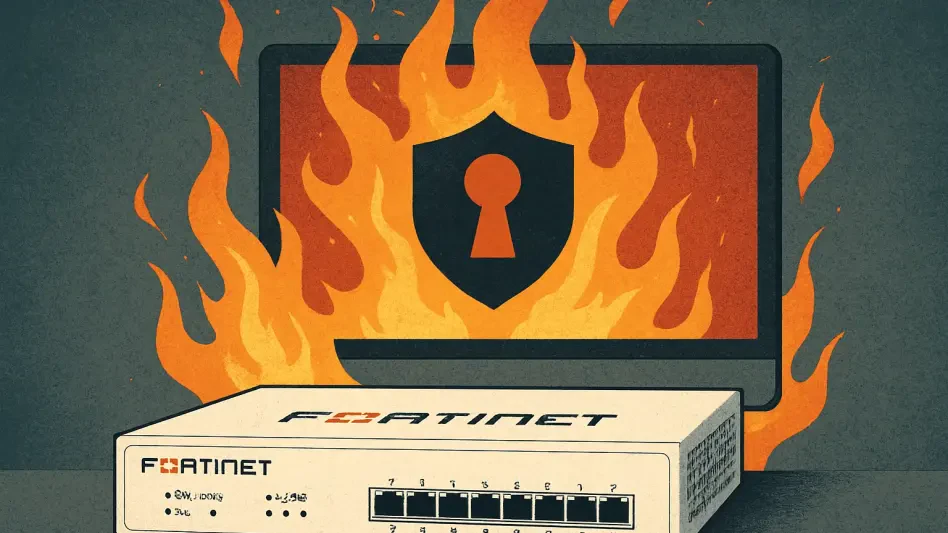The internet has become a more dangerous place over the years, with advancements in technology, especially Artificial Intelligence (AI), contributing to the rise in sophisticated cyber attacks. To protect yourself from these threats, it is essential to adopt a comprehensive cybersecurity strategy that includes several foundational tools and practices. These proactive steps can ensure that your personal data and online activities are safeguarded from potential breaches, malware, and other malicious activities that are increasingly prevalent in today’s digital landscape.
Understanding the Evolving Threat Landscape
The internet is rife with dangers such as phishing, malware, ransomware, and data breaches. As AI technology progresses, these threats become more advanced and harder to detect. Cyber attackers continuously refine their tactics, making it more challenging to differentiate between legitimate and malicious activities. This makes it crucial to stay informed about the latest cyber threats and understand the potential risks they pose. By educating yourself on the various types of attacks and their common signs, you can better prepare your defenses and recognize suspicious behavior early.
Advanced Persistent Threats (APTs) have also become a significant concern, particularly for high-value targets such as corporations and government entities. However, their methods can trickle down to individual users, making personal cybersecurity awareness even more critical. Social engineering attacks, where attackers manipulate individuals to divulge confidential information, are another sophisticated tactic increasingly used. Understanding these evolving threats and maintaining a vigilant approach can greatly benefit your overall cybersecurity posture.
Essential Antivirus Software
Antivirus software is the first line of defense against a variety of cyber threats. Starting with reliable options like Microsoft’s Windows Security suite can provide basic protection. This software is integrated with the operating system, ensuring it runs seamlessly without significant user intervention. For those seeking enhanced security features, paid solutions like Norton 360 Deluxe offer additional benefits such as dark web monitoring, VPN services, and integrated password managers. Such comprehensive protection elevates your security measures beyond mere virus detection.
Antivirus software works by scanning your computer for known threats, monitoring files for unusual activity, and providing real-time protection against new malware. Advanced features in paid antivirus programs can include firewall protection, identity theft prevention tools, and even family safety options. Regular updates are critical, as they ensure the software can recognize and counteract the latest viruses and malware. By using robust antivirus software, you can establish a solid defense against a wide array of potential cyber attacks, enhancing your overall security.
The Importance of Password Managers
Managing strong, unique passwords for every online account is critical for cybersecurity. Reusing passwords or creating weak ones can leave you vulnerable to attacks. Password managers not only help create robust passwords but also minimize personal data stored on various websites. While Google and Apple offer basic password management tools integrated into their browsers and operating systems, premium options like Bitwarden and Dashlane provide advanced features such as password sharing and compromised password monitoring. These tools can alert you if your credentials are found in a data breach, allowing you to take prompt action.
Using a password manager means you only need to remember one master password, as the application will handle the rest. This makes it easier to maintain complex passwords for each account without worrying about forgetting them. Advanced password managers also generate strong, random passwords for you and can fill in login forms automatically. By reducing the likelihood of using weak or repeated passwords, these tools significantly enhance your security, making it much harder for attackers to gain unauthorized access to your accounts.
Enhancing Security with Two-Factor Authentication
Two-Factor Authentication (2FA) adds an extra layer of security by generating codes that prevent unauthorized access even if passwords are compromised. Popular 2FA apps like Authy, Google Authenticator, Aegis, and Raivo offer varying levels of security and functionality, making it harder for hackers to breach your accounts. When you enable 2FA, accessing your account requires not just your password but also a code sent to or generated by your mobile device, ensuring that even if your password is stolen, the attacker cannot access your account without the second factor.
Implementing 2FA on all your accounts, wherever supported, is a crucial step towards improving your digital security. Different 2FA methods, such as SMS codes, authenticator apps, and hardware tokens, provide flexibility based on your needs and preferences. Authenticator apps generate codes offline and are considered more secure than SMS-based methods, which can be vulnerable to SIM swapping attacks. By adding this additional authentication step, you significantly increase the security of your online accounts, offering more robust protection against unauthorized access.
Exploring Passkeys as an Alternative
For those who find traditional passwords and 2FA cumbersome, passkeys offer a secure alternative. Stored directly on devices, passkeys require biometric authentication or a PIN for use, making them difficult to steal. This method alleviates the need to remember passwords and eliminates the risk of password-based attacks. Major platforms like Google, Apple, and Microsoft have integrated passkey technology, although it is not yet universally supported. As more websites and services adopt passkeys, this method could become an increasingly popular secure authentication option.
Passkeys work by using public-key cryptography to establish a secure connection between the user and the service. The private key, stored on the user’s device, is never shared, reducing the risk of it being intercepted. The user authenticates using biometrics or a device-specific PIN, adding an extra layer of security. Passkeys provide a seamless login experience and are resistant to phishing and man-in-the-middle attacks. As adoption grows, passkeys could revolutionize online security by providing a more secure and user-friendly alternative to traditional passwords and 2FA.
Utilizing Email Masks for Added Security
Given the prevalence of data breaches, using unique usernames and email addresses for different sites can help protect your information. Attackers often use stolen credentials in credential stuffing attacks, where they try the same username-password combinations on multiple sites. Email masking services like DuckDuckGo and Firefox Relay generate disposable email addresses to prevent such attacks. When one masked email is compromised, it does not affect others. Premium services, such as Apple’s Hide My Email, offer additional features and increased security compared to simple email aliases provided by Gmail and other providers.
Email masks work by forwarding emails sent to alias addresses to your actual email inbox, keeping your real email address hidden from the sender. This approach not only protects your privacy but also makes it easier to manage spam and filter unwanted messages. If an alias is compromised or starts receiving excessive spam, it can be easily deactivated without impacting your primary email. By using email masking services, you can add an extra layer of protection to your online accounts, reducing the risk of being targeted in large-scale data breaches.
The Role of Google Voice Numbers
To mitigate risks associated with SMS-based 2FA, using Google Voice numbers for less critical services is recommended. This approach helps reduce the risk of SIM jacking, a method where attackers steal phone numbers to bypass SMS-based 2FA. By using a Google Voice number for non-essential accounts, you can protect your real number for services that matter most, like financial and healthcare accounts, thus segregating critical communications. Google Voice numbers can also be easily managed and changed if there is any suspicion of compromise.
Google Voice not only provides an additional shield against unauthorized access but also offers features like call screening, voicemail transcription, and the ability to send and receive texts from multiple devices. This makes it a versatile tool for maintaining communication security. Additionally, by minimizing the use of your primary phone number, you reduce the overall risk of it being exposed in data breaches or leaks. Employing a strategy that leverages Google Voice numbers alongside traditional communication methods can enhance your security framework, providing peace of mind.
The Impact of AI and User Education
The internet has grown increasingly perilous over the years, with the evolution of technology, especially Artificial Intelligence (AI), playing a significant role in the emergence of advanced cyber threats. Protecting yourself from these dangers necessitates a thorough cybersecurity strategy incorporating several key tools and best practices. By taking these proactive measures, you can safeguard your personal information and online activities from potential breaches, malware, and other malicious activities that are becoming more common in our digital age.
It is important to remember that comprehensive online protection involves regularly updating your software, employing strong, unique passwords, and using multi-factor authentication. Moreover, being wary of phishing attempts and suspicious emails can help prevent unauthorized access to your sensitive data. These steps are crucial in fortifying your defenses against the ever-evolving array of cyber threats, ensuring that you can navigate the internet more safely and maintain a secure online presence.








